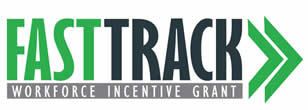Biology Education
Continue to main content
Biology Education (BSED) Degree Map
Explore the biology education courses you'll need to complete your degree.
Biology Education Outcomes & Careers
-
$73k
High School Teacher
According to the Bureau of Labor Statistics, the mean annual salary for High School teachers is $73,700.
-
$70k
Middle School Teacher
According to the Bureau of Labor Statistics, the mean annual salary for middle school teachers is $70,040.
-
$101k
Biological Science Postsecondary Teacher
According to the Bureau of Labor Statistics, the mean annual salary for postsecondary teachers is $101,340.
The biology education requirements includes coursework in both biology and education. You’ll complete a minimum of 120 credit hours to complete this degree, including the general education requirements and at least 39 senior division hours.
“Critical Courses” are italicized and bolded. Data shows that students who have completed this course in the first two years and have earned the noted grade are most likely to complete this program of study.
Education Courses - 47 Hours Required
A grade of ‘C’ or better is required in education courses, with the exception of ED280 which requires a grade of ‘B’ or better.
- ED280 Introduction to Education as a Profession (3)
- EF400 Student Teaching Seminar (1)
- EX390 Psychology and Education of the Exceptional Child (3)
- PY222 Development of the Adolescent (3)
- SE307 Content Literacy Methods for Middle and High School (3)
- SE320 Techniques of Teaching Science (3)
- SE350 Pedagogy 1: Principles of Effective Teaching (3)
- SE355 Field Experience II (3)
- SE365 Pedagogy 2: Secondary School (4)
- SE380 Advanced Field Experience (3)
- SE385 Pedagogy 3: Advanced Methods of Middle and Secondary Teaching (3)
- SE390 Instructional Interventions for Middle and Secondary Students with Special Literacy Needs (3)
- SE465 Student Teaching (12)
Biology Education – 39-40 Hour Major - No Minor Required
- BY163 Evolution & Ecology (4)
- BY173 Cell & Organismal Biology (4)
- BY283 Genetics (4)
- BY320 Zoology (3)
- BY360 Plant Biology (4)
- CH184/CH185 General Chemistry I and Lab (3+1)
- EV105 Environmental Biology (3)
- EV106 Environmental Biology Lab (1)
- GO318 Earth Science: Proc Approach (3)
Choose 4 hours:
- BY310 General Microbiology (4)
- BY330 General Ecology (4)
Choose 4-5 hours:
- PH106/PH107 Physical Concepts (4)
- PH120 Intro Physics I (5)
Additional Requirement:
- MA116 Precalculus A (3)
- MI101 Introduction to Microcomputer Applications (3)
Some requirements may be fulfilled by coursework in major program.
- Social and Behavioral Sciences – 6 hours
- Constitution Requirement – 3 hours
- Written Communication – 6 hours
- Oral Communication – 3 hours
- Natural Sciences – 7 hours (from two disciplines, one to include a lab)
- Mathematics – 3 hours
- Humanities & Fine Arts – 9 hours (from at least two disciplines)
- Additional requirements – 5 hours (to include UI100 for native students)
- Civics examination
To be eligible for enrollment in the majority of courses offered by the Teacher Preparation Program
and required for a teaching degree (BSE, BSFCSE, BME), students must be admitted to the Teacher
Preparation Program (TPP). Students should apply for admission to the TPP upon having met the following entrance criteria:
- 42 hours of coursework completed;
- One of the following:
- Composite/Superscore of 20 or higher on the ACT exam
- Passing score on the Missouri General Education Assessment (MoGEA)*
- Have a previous 4-year degree from an accredited college/university
- The following course requirements met:
- A minimum grade of 'C' in CF/PY120 The Child (Elementary, Early, and Exceptional) or PY222 Development of the Adolescent (Middle and Secondary)
- A minimum grade of 'B' in ED280 Introduction to Education as a Profession or ME222 Principles of Teaching Music.
- International Students must also meet the following requirements:
- C1 (CEFR) level
- IELTS minimum score of 7.0 or TOEFL minimum score of 95
- Note: This policy is for non-United States citizens who are not native English
speakers. Students from the United Kingdom, Canada, Australia, and New
Zealand are exempt from English proficiency verification
*Students already admitted to the University should take the MoGEA instead of re-taking the
ACT
First Year
Fall Semester (15 Hours)
- UI100 (1)
- BY163 (4)
- CH184/185 (4)
- MA116 (3)
- MI101(3)
Spring Semester (17 Hours)
- BY173 (4)
- EN100 (3)
- EV105/106 (4)
- General Education (3)
- General Education (3)
Second Year
Fall Semester (17-18 Hours)
- BY283 (4)
- PH106/107 or PH120/020 (4-5)
- PY222 (3)
- General Education (3)
- General Education (3)
Spring Semester (16 Hours)
- BY310 or BY330 (4)
- ED280 (3)
- General Education (3)
- General Education (3)
- General Education (3)
Milestone: Admission to the Teacher Preparation Program
Third Year
Fall Semester (16 Hours)
- BY320 (3)
- EX390 (3)
- GO318/018 (3)
- PL425 (3)
- SE350 (3)
Spring Semester (14 Hours)
- BY360 (4)
- SE307 (3)
- SE355 (3)
- SE365 (4)
Milestone: Maintain a 3.0 GPA in content courses and in professional education
courses.
Third Year
Fall Semester (12 Hours)
- SE320 (3)
- SE380 (3)
- SE385 (3)
- SE390 (3)
Spring Semester (13 Hours)
- EF400 (1)
- SE465 (12)
Milestone: Prior to last semester: Passing score Mo Content Exam, MoPTA, 2.75 cumulative GPA, 3.0 GPA in Education and content
A “Milestone” signifies a significant stage for a student in the completion of a degree.
What will it cost?
Become a Redhawk.
Do more than dream about the future. Take the first steps to make it all happen.
Hands-on Learning
You’ll gain hands-on real-world experience through your student teaching experience.
Alumna
"I would not be the teacher I am today without them. Ever since I have graduated, the professors have continued to check in on me and help me become a better teacher."
Chasity Papenberg

Get Funding for Your Education
Missouri’s opened the door to a more educated workforce. We want to help you walk through it. If you’re an adult learner and a Missouri resident returning to college, learn about the Fast Track Workforce Incentive Grant. It’s a statewide financial aid program that can be used to pursue a certificate, degree or industry-recognized credential in a high need area in Missouri. This major is eligible for the Fast Track grant.
Financial Assistance Getting My Biology Education Teaching Degree
Because science teachers are in such high demand across most of the country and particularly in Missouri, there are some programs designed to incentivize students to go into the field and help pay for your education.
There are forgiveness programs for different types of federal loans in return for teaching science in a high-needs school district (most in Missouri). In addition, students may be eligible to participate in the TEACH grant program which can pay up to $16,000 in college costs over four years and has a similar loan forgiveness program. Be sure to consult the financial aid office for details.
Cape Girardeau, Missouri 63701



